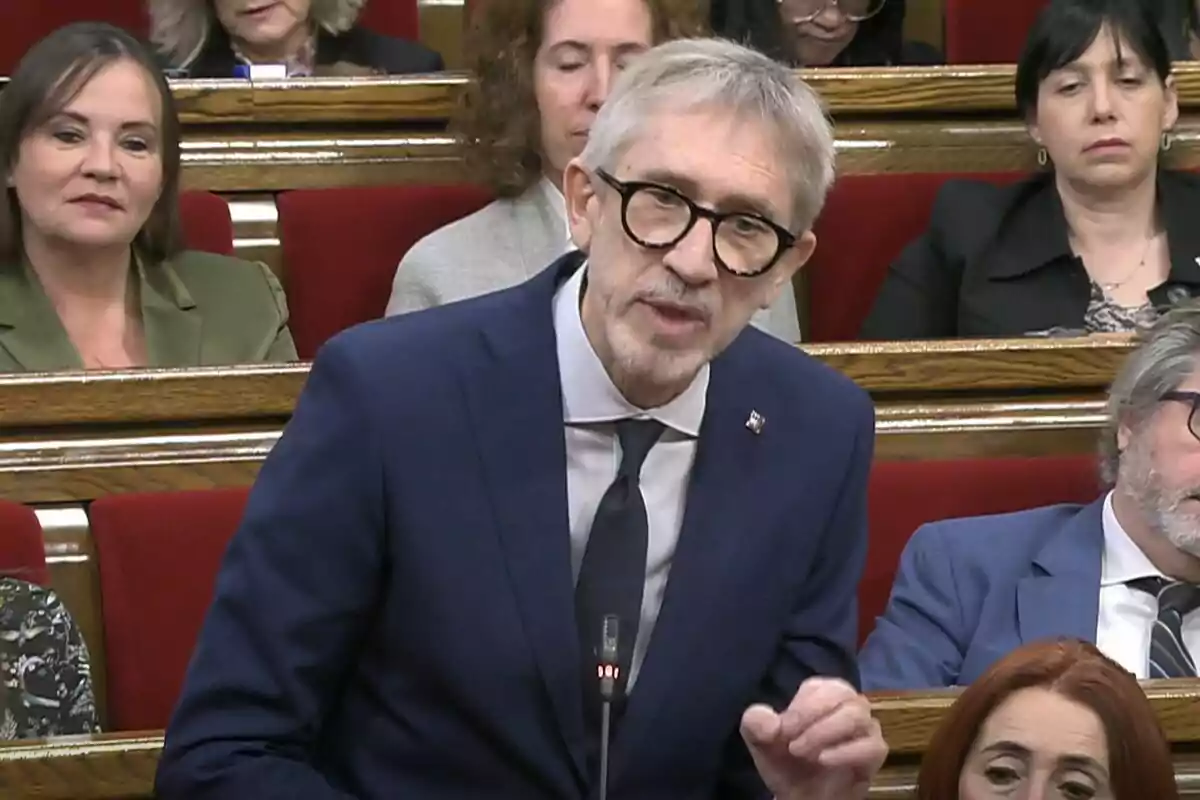
The left claims its place in Junts while Puigdemont shifts to the right
Agustí Colomines's Moviment d'Esquerres claims 'democratic socialism' in the 'separatism cause'
A movement with ideological diversity but strongly controlled by a conservative leadership core. This was Carles Puigdemont's approach for the new stage of Junts, opened after the Calella Congress in October 2024. In practice, this is causing internal chaos and dragging the party into indecision and erratic behavior.

In Junts, there is currently a convergent sector, in favor of shifting to the right to adapt to the new context, and another leftist sector opposed to being dragged by the radical right. This leads the party to erratic behavior with constant inconsistencies.
The leader of the leftist faction is Agustí Colomines, a defender of causes like Catalan courses for radical imams. He also insulted E-Notícies and called Sílvia Orriols "fascist" in Parliament. But at the same time, he represents a party that is demanding a tough stance against crime, more immigration controls, and more rigorous census control.
MES, the left within Junts
Colomines is part of the Moviment d'Esquerres de Catalunya (MES), a political party that inherits the legacy of Catalan socialist ideology once represented by the defunct PSUC.
The movement was born in 2014 with the merger of PSC breakaways. Ideologically, they claim the values of socialism and republicanism. Nationally, they are in favor of the right to decide and define themselves as separatists.
In April, they signed an agreement with Junts for more stable collaboration, which includes dual membership and joint work in various areas. MES thus integrated into the 'Fem-ho Junts' space, created at the Junts National Congress in October 2024. Both formations defended "shared objectives" based on "national emancipation."
These days, the movement has claimed its space in Junts's project. Colomines himself has defended MES's contribution to the "separatist cause," which relates to the "vision of democratic socialism." At the same time, he states that it is "the best way to contribute to the national alternative that Carles Puigdemont leads today."
Ideological and strategic chaos
One of the objectives of the national congress was to end the ideological division and recentralize the party ideologically and organically. But the need to open the party to other currents led to confusion. While the borrasista sector was being displaced, the entry of new currents was encouraged, adding more tension.
Now Junts has a sector of the party buying into Aliança Catalana's recipe and another sector calling Sílvia Orriols "fascist." The presence of people like Agustí Colomines and Aurora Madaula sharing space with Ramon Bacardit, Jordi Masquef, or Marc Buch shows Junts's indecision. Moreover, the fiction of decentralization clashes with Puigdemont's growing authoritarianism.
The party institutionalizes the presence of currents like Demòcrates (Antoni Castellà) and MES itself. But at the same time, it concentrates power in the hands of the convergent elite, and important decisions continue to be made from Waterloo.
On the other hand, the ideological indecision is a burden too heavy in the midst of a fight with Aliança Catalana. Adding all this, it is not surprising that Carles Puigdemont is sinking more and more in the polls. Nor that his downfall is at the expense of Sílvia Orriols's rise.
More posts: